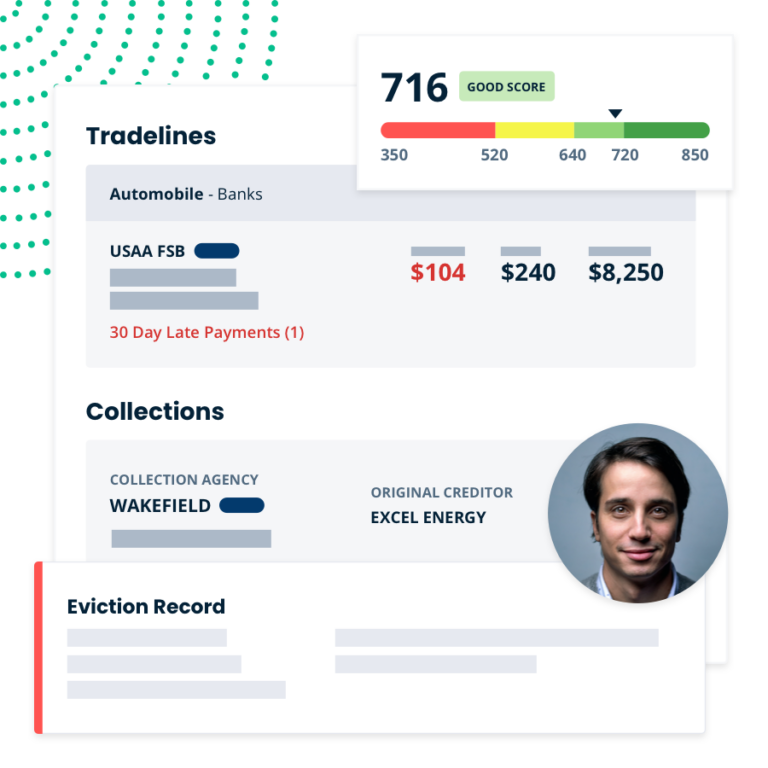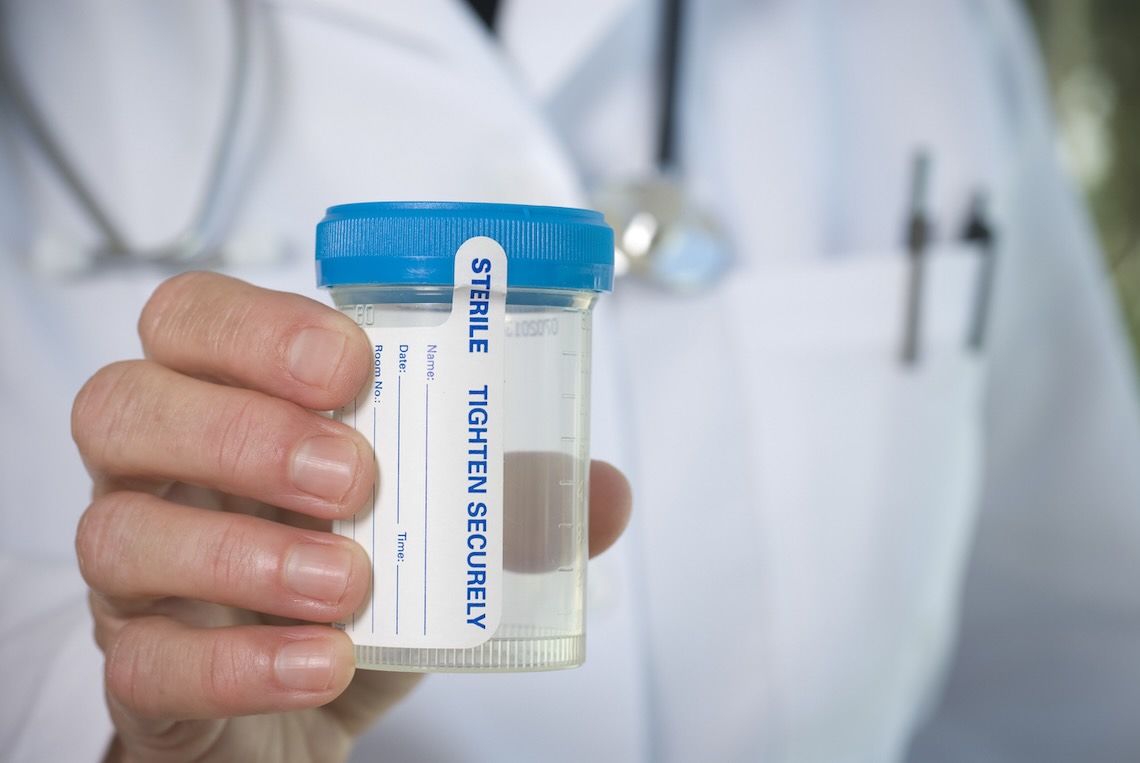Tenant screening is a crucial element of any rental property business. A detailed look into an applicant’s criminal, financial, and eviction history gives landlords insight into a potential tenant’s history before committing to a business relationship.
But there is another type of screening that goes beyond the routine: drug testing. With housing resources scarce and the consequences of an unfit tenant potentially disastrous, you may wonder if you can drug test tenants who apply to live in your rental property.
The answer is yes. You can drug test applicants as long as you test every prospective tenant who applies to your dwelling. Once tenants move in, however, you can’t randomly screen residents unless your process is specified in the lease and agreed to by the tenant. However, different housing arrangements, such as sober living facilities, may require drug testing as a condition of housing.
Of course, as with most things related to the legal system, there are a number of considerations you’ll need to be aware of before including drug testing in your screening processes.

Fair Housing Protections
As it relates to Fair Housing Act (FHA) protections, formerly addicted drug users are considered a protected class. You cannot simply deny an applicant due to past drug addiction as long as they’re deemed rehabilitated and can prove it via documentation.
It is important to state, however, that those FHA protections don’t apply to those in active addiction to illegal substances. In other words, if an applicant continues to use illicit drugs, they’re not considered a protected class.
The issue with drug testing prospective tenants arises when landlords seek to only drug test individual applicants on suspicion of drug use or revelations of past drug addiction. Suppose a renter suspects a landlord is singling them out and forcing them to drug test as a condition of renting a property while other prospective tenants aren’t facing the same scrutiny. Now, suppose they’re correct in their assumption.
In that case, the tenant could sue the landlord for violating fair housing laws. The bottom line: If you’re going to drug test your applicants, you must test every single one.
Alcohol Use
Of course, unlike illicit drugs, alcohol is not an illegal substance. As a result, different rules apply. Those experiencing alcohol abuse disorder can be considered disabled and are, therefore, a protected class. You cannot deny this protected class housing based on the fact that they have an alcohol addiction.
While these rules aren’t strictly related to drug testing, you should understand the difference between how the FHA regulates alcohol and illegal drug addiction.
Exceptions
Protected classes aren’t free to pose threats to property or other tenants and still be considered protected under the FHA.
No matter the disability, whether drug, alcohol, or another disability, nothing in the FHA requires housing providers to make a dwelling “available to an individual whose tenancy would constitute a direct threat to the health or safety of other individuals or whose tenancy would result in substantial physical damage to the property of others,” as noted by the Cornell Law School.
In other words, if you were to rent to an individual with an alcohol use disorder or another addiction (treated or not) who poses a threat to your property or others in the community, their tenancy would not be guaranteed based on the fact that they have an addiction. They still need to contribute to a safe living environment.
For a deeper dive into the rules and regulations, the National Housing Law Project breaks down the actions a landlord can take, and the evidence-based requirements landlords must meet to take further action.
Living Situation Exceptions
As mentioned briefly above, not all housing situations are the same. In these cases, drug testing may not constitute a breach of the FHA.
Designated Housing
Housing specifically designated for sober living or recovering people with an addiction might feature drug testing policies as a part of their residency requirements.
Employment-Linked Housing
Drug testing might be permissible under specific company policies when housing is directly tied to employment, like living on company property.
Lease Clauses with Tenant Consent
Some leases might outline drug testing with the tenant’s explicit consent. Even in these cases, however, landlords should tread carefully to avoid claims of coercion.
HUD and Public Housing Authority Considerations

If you’re a Section 8 housing provider, you must account for the federal rules set to enforce safe housing conditions and how individual public housing authorities apply those rules.
The 2013 Journal of Public Policy Development and Research article “Alcohol, Drug, and Criminal History Restrictions in Public Housing” reports that some housing authorities require drug testing to receive PHA funds.
“The Indianapolis Housing Agency (2010) imposed mandatory drug testing of applicant households, whereas the Charlotte Housing Authority (2012) required applicants to sign consent forms allowing the PHA to contact third parties involved in an applicant’s life (for example, social workers, police officers, and landlords).”
The critical takeaway is to contact your public housing authority for information regarding drug testing if you use these programs. Housing authorities can enforce federal regulations via the rules they deem appropriate, and there are significant differences between PHAs.
Legal Repercussions of Unlawful Drug Testing
Landlords who disregard Fair Housing Act protections and implement selective drug testing risk facing significant legal consequences.
Lawsuits
Tenants denied housing due to a drug test can file lawsuits against the landlord for violating the FHA, provided they have the evidence to back up their wrongful denial. For example, if a potential tenant takes opioid pain medication for a disability yet is denied housing based on the results of a drug test, they can sue.
In addition to applicant lawsuits, fair housing advocacy groups or the Department of Housing and Urban Development (HUD) may sue the landlord.
Monetary Damages
If the court finds the landlord in violation, they may be required to compensate the tenant for emotional distress, moving costs, and additional expenses.
Injunctions
The court could order the landlord to cease the discriminatory practice and offer the wrongfully denied tenant housing.
Civil Penalties
The HUD can impose civil penalties on landlords who violate the FHA.
Alternatives to Drug Testing
If you choose to drug test every tenant who applies to your rental, you’ll have an additional layer of cost and administrative work to manage. Drug tests aren’t free, and tenants aren’t likely to foot the bill.
Plus, tenants who must complete a drug screening to rent your place may choose to bring their money elsewhere. In competitive markets, a drug testing requirement may extend vacancy times and compel renters to look for properties that don’t have drug screening requirements.
Of course, every situation is different. If you’re subject to specific PHA rules, you may have no choice but to drug test prospective tenants.
However, if you’re not bound to PHA regulations, we think there are valuable alternatives you can utilize to ensure your tenant treats your property with care, maintains a safe environment for other tenants, and ensures the rent gets paid monthly.
Background Checks
While subject to legal limitations, background checks reveal information about criminal history or prior evictions. If an applicant has a criminal history related to drug use, manufacture, or distribution, you can choose another tenant.
But be careful; different states legislate the offenses you can deny. For example, in some states, if the tenant has a deferred sentence that wasn’t revoked, you can’t deny housing based on the charge.
Credit Checks
Credit checks provide insight into a would-be tenant’s financial responsibility and ability to pay rent. While a credit score won’t give you the best idea of whether or not a tenant will pay their rent on time, a history of on-time payments can provide peace of mind.
Reference Checks
Contacting previous landlords or employers for reference checks (with tenant permission) can offer valuable insight into a tenant’s rental history and behavior.
While background checks and credit checks can create a sketch of a potential tenant, conversations with those around the applicant will fill the sketch with color.
Employment Verification
Verifying employment (with tenant approval) enables landlords to confirm an applicant has the means to pay rent on time. It’s a good way to verify that what the applicant says is accurate and that they’re employed.
Income Insights
Now included with TurboTenant Premium, Income Insights provides landlords with an additional check; landlords can now use information from TransUnion to compare against renter-reported income.
Ask FHA Permitted Questions
You don’t have to drug test applicants to ask questions related to drug use. While we don’t expect people with something to hide to answer these questions truthfully, there are some questions that landlords can ask prospective tenants.
Just be sure to ask every applicant so as not to discriminate.
Here is a list of acceptable drug-testing-related questions from Cornell Law:
(4) Inquiring whether an applicant for a dwelling is a current illegal abuser or addict of a controlled substance;
(5) Inquiring whether an applicant has been convicted of the illegal manufacture or distribution of a controlled substance.
Simply asking these questions can help you let potential renters know that you’re serious about these factors, which may be enough for them to consider other properties to rent. If they bristle at the questions, you’ll have something to consider.
Next Steps and Conclusion

Depending on your circumstances and reasoning for drug testing tenants, the process could end up being more trouble than it’s worth. Between paying for drug tests, navigating FHA laws, and risking legal action, consider a thorough screening process from a trusted partner instead.
TurboTenant’s tenant screening service delivers industry-leading screening reports that cover:
- Credit Scores
- Lines of Credit
- Credit Inquiries
- Debt in Collections
- Criminal Records
- Past Evictions
- Income Verification (included with Premium)
When you pair a comprehensive report with thorough reference checks, you’ll give yourself the best opportunity to land quality tenants who’ll fulfill their end of the bargain.
And if you’re a landlord looking to simplify your property management process, TurboTenant is more than a great tenant screening service. When you sign up for a free account, you gain access to rent collection, maintenance management, property advertising, and other features to help you save time and money.







